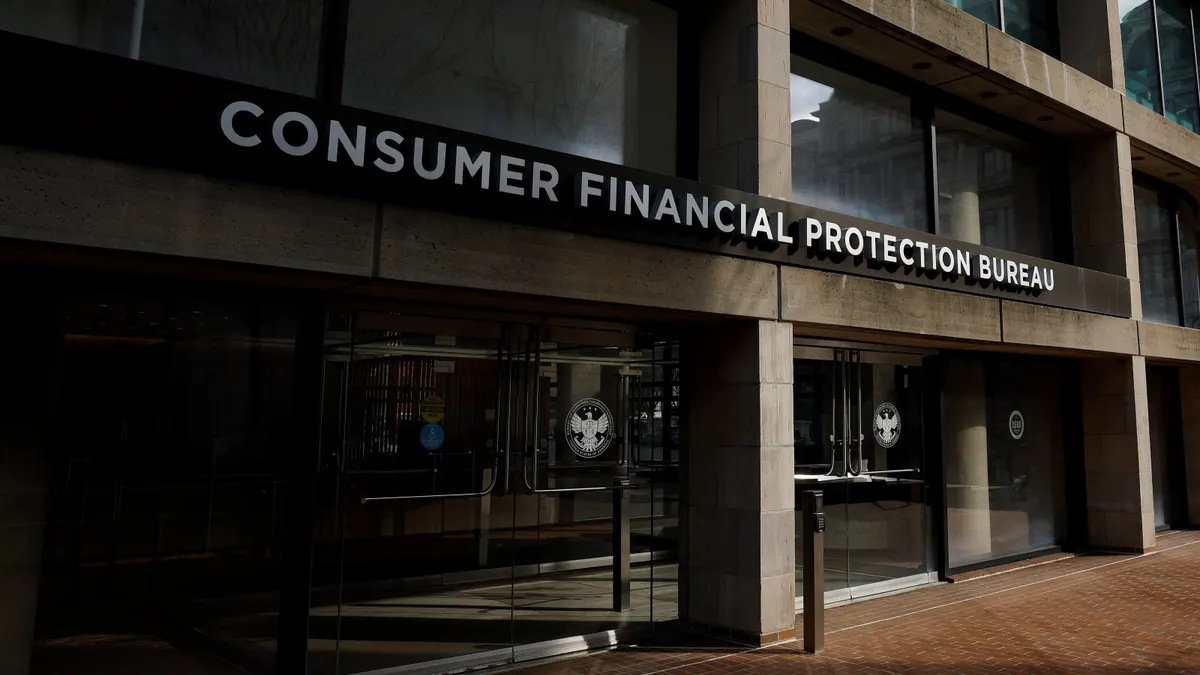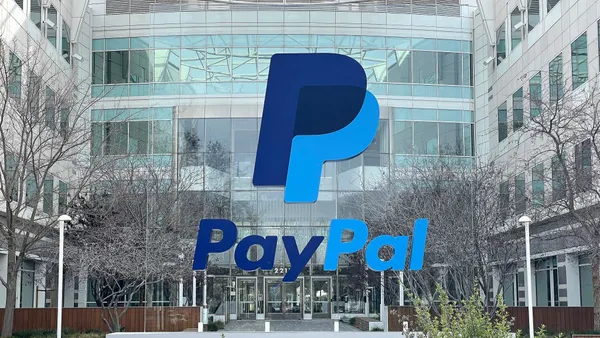Dive Brief:
- The Consumer Financial Protection Bureau posed several questions Thursday about open banking, including who may represent consumers and who should cover the costs incurred in sharing data with fintechs that seek to supplant banks in providing financial services.
- The bureau filed notice that its queries will be published Friday in the Federal Register, starting a 60-day comment period in which banks, fintechs and others are likely to seek to shape the bureau’s open banking rule. Last month, the agency obtained a stay in federal court litigation over the rule brought by banks after it told the court it would begin work to revise the rule on an expedited basis.
- The Financial Technology Association, which intervened in the litigation to defend the bureau’s 2024 rule, said in a statement from CEO Penny Lee that the rulemaking “gives consumers, innovative banks, fintechs and Main Street businesses an opportunity to stand up for Americans’ rights to access innovation and control their own financial data without unfair roadblocks.”
Dive Insight:
The Bank Policy Institute, the Kentucky Bankers Association and Forcht Bank sued the CFPB last year to block the rule, arguing that the agency, under the Biden administration, had exceeded its authority, and challenged several aspects of the open banking rule, including its prohibition against assessing fees for data access.
Under the Trump administration, the CFPB adopted the banks’ view of the litigation, and asked the court to set aside the rule, which it called “unlawful.”
But now the agency appears to be fine-tuning its stance. Four of the bureau’s primary questions in its information solicitation align with concerns that banking plaintiffs had raised in their lawsuit, filed in October 2024 the same day the bureau adopted the final open banking rule.
“The statutory text of section 1033 is quite sparse and does not specifically address several important questions that arise from the rights it creates,” the advanced notice of proposed rulemaking said.
Among those questions: who may act on a consumer’s behalf; how the costs of providing financial data may be defrayed; what kinds of consumer risks exist given what the notice called “tens of thousands of malign actors.” The CFPB also wants to know about potential negative consequences of disclosing data to a third party that may contain information a consumer did not intend to reveal.
The FTA’s Lee said that, via the rulemaking, the Trump administration was “calling needed attention to barriers to innovation being erected by the largest banks, especially recent threats to impose more fees on Americans who simply want open access to their own bank accounts.”
The Electronic Transactions Association also welcomed the rulemaking.
“The CFPB is asking the right questions, especially about protecting consumer data from breaches and fraud, which is a top priority for the payments industry and was largely absent from the first rule,” Scott Talbott, an ETA executive vice president, said Thursday in an email.
The American Fintech Council said in an emailed statement that “a robust and thoughtful process that aligns with the Trump administration’s innovation agenda will create important consumer choice and financial access and equity for years to come.”
“Upholding the principles of the 1033 rule and its key features, notably, its prohibition on charging fees for authorized access to consumer data, is essential to ensuring consumers have the freedom to choose the financial services that work best for them,” Ian P. Moloney, the AFC’s senior vice president of policy and regulatory affairs, wrote in the email.
Steve Boms, executive director of the Financial Data and Technology Association, said in a statement that the group is “gratified that the Bureau is no longer entertaining arguments from the banking industry that the statutory definition of ‘consumer’ can be ignored.”
“At the same time, we are concerned that the Bureau may be considering delaying implementation deadlines without consulting small businesses, particularly startups and small retailers, on how such delays could negatively impact their operations,” Boms said.
The bureau also requested information about “the potential benefits to consumers or competition of facilitating the consumer-authorized transfer of data” to fintechs, application developers and other third parties.
For fintechs, the fate of U.S. open banking gained new urgency in recent weeks as JPMorgan Chase, the largest U.S. bank, informed several data aggregators of new fees for access to consumers’ financial information.
Such fees, if widely adopted, could add hefty costs for fintechs seeking to handle transactions and lure customers away from banks. New fees could also hamper the growth of cryptocurrency enterprises and “risks the future of fintech, digital assets, and America’s financial innovation and global leadership,” ten associations wrote last month in a letter seeking President Donald Trump’s help with the issue.
Last week, the CEOs of about 80 fintech and related companies sent Trump a letter urging him to intervene to prevent banks from assessing the fees.
The current open banking rule is set to take effect for the largest banks in mid-2026, with compliance deadlines for other banks layered through 2030. Financial institutions with less than $850 million in assets are exempt from the rule.
The bureau, under Acting Director Russell Vought, told U.S. District Judge Danny Reeves last month that it plans “an accelerated rulemaking process” to revise the open banking rule.














